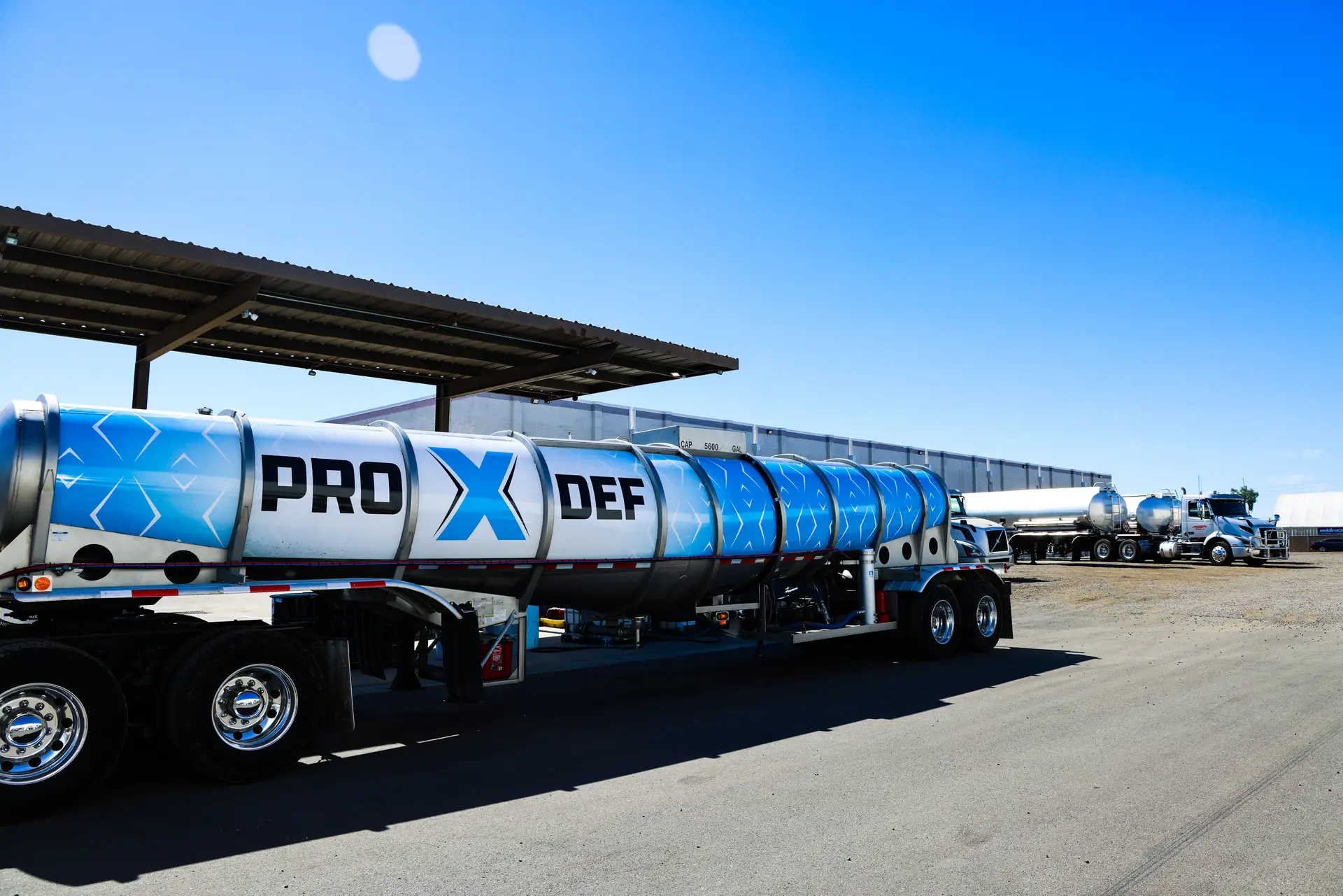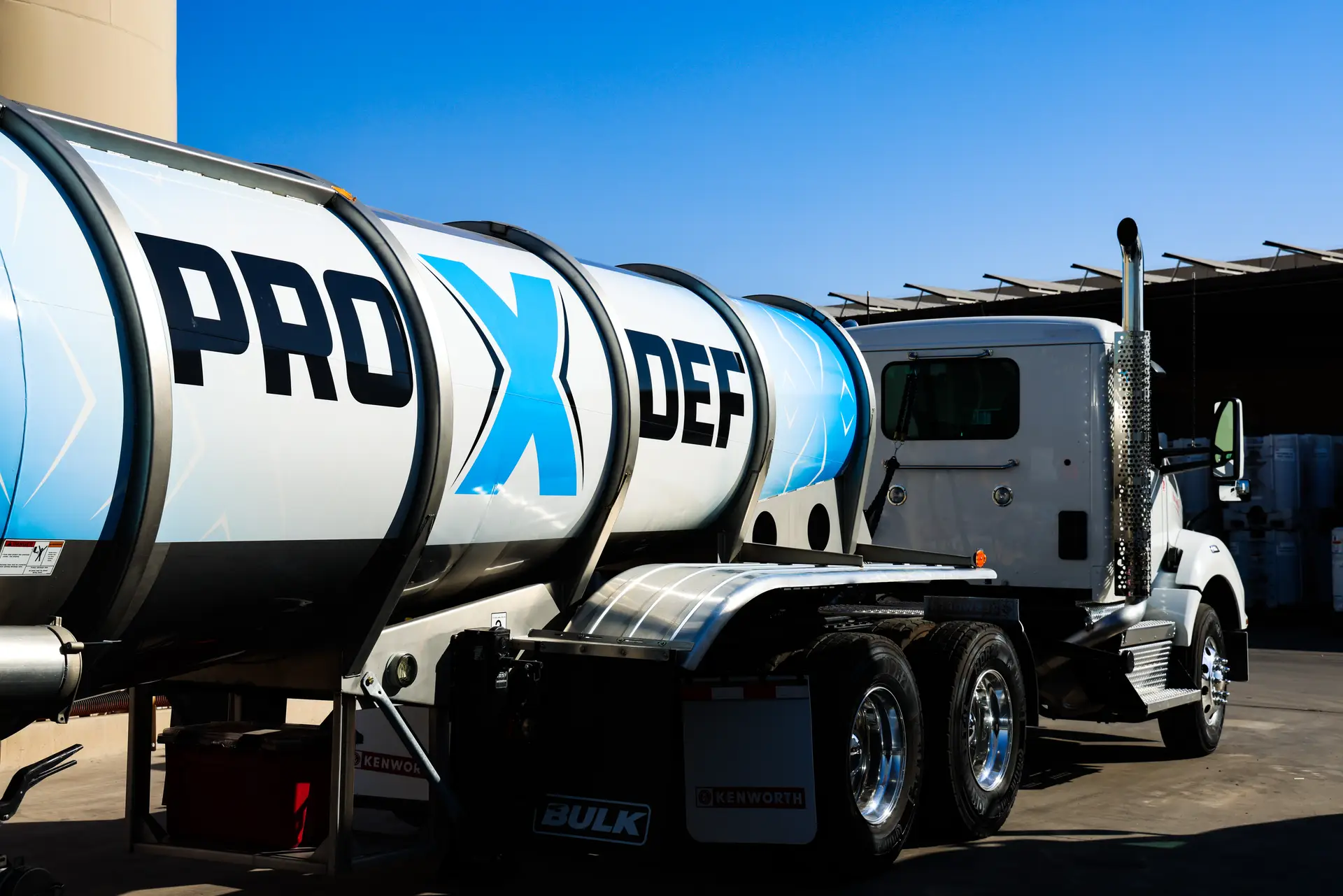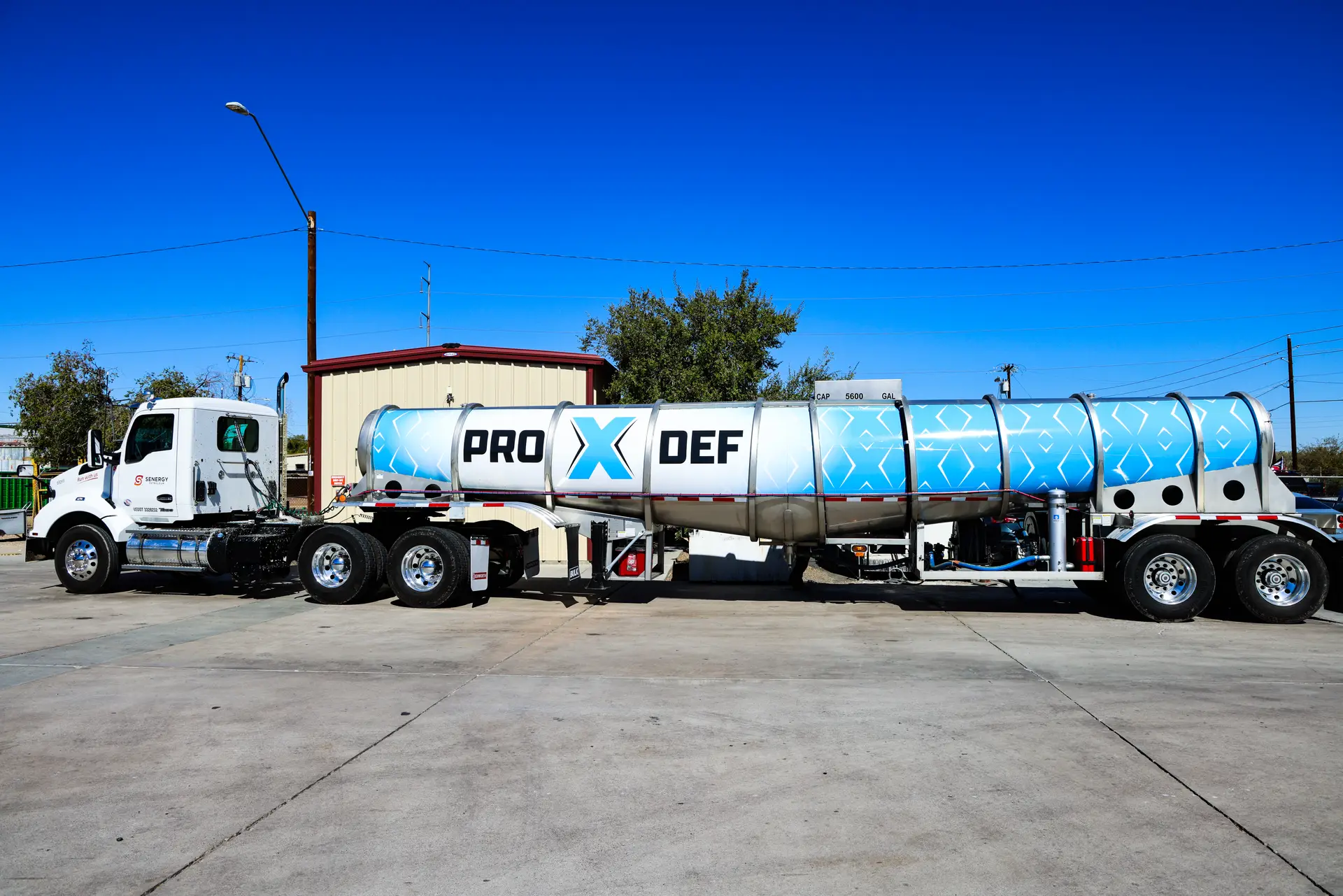Why DEF Quality Matters for Fleet Operations
In modern diesel fleets, optimal performance and regulatory compliance depend not only on engine hardware or fuel quality but also on the consumables used in the emissions aftertreatment system. Among these components, Diesel Exhaust Fluid (DEF) plays a critical role. Maintaining DEF purity, adhering to DEF quality standards, and practicing proactive fleet maintenance are all essential to protecting emissions system performance and supporting a reliable, efficient fleet operations strategy.
Why DEF Quality Directly Impacts Your Fleet
Diesel Exhaust Fluid (DEF) is a urea-based solution used in SCR-equipped vehicles to reduce NOx emissions. It contains 32.5% high-purity urea and 67.5% deionized water.
For fleet managers, understanding DEF is key to controlling costs and staying compliant. When clean DEF enters the exhaust stream, it breaks down and helps the SCR system convert NOx into harmless water vapor and nitrogen.
Low-quality or contaminated DEF, however, can cause catalyst damage, deposits, clogged filters, and injector blockages—leading to unplanned downtime. For diesel fleets, DEF is not a simple consumable; it’s a critical part of the emissions system. Building DEF quality checks into fleet maintenance protects system performance, reduces repairs, and helps control long-term operating costs.
The Importance of DEF Purity and Proper Handling
Maintaining DEF purity is essential for protecting modern emissions systems. ISO 22241 sets strict requirements for DEF composition, handling, transportation, and storage—and even small amounts of contamination can damage sensitive SCR components.
For fleets, correct urea concentration isn’t enough. DEF must stay free of metal ions, particulates, and other contaminants that come from improper handling or storage. When purity drops, SCR performance declines, sensors trigger faults, backpressure rises, fuel efficiency falls, and downtime becomes more likely.
To prevent this, fleets must monitor DEF quality and follow consistent handling protocols. These practices protect emissions performance and support the long-term health and reliability of every vehicle.
DEF Quality Standards: Protecting Your Fleet and Your Bottom Line
DEF quality standards act as an insurance policy for fleet operations. The American Petroleum Institute (API) certification program, based on the ISO 22241 standard, provides fleet operators with assurance that the DEF they purchase meets strict performance and purity requirements.
These standards address far more than urea concentration. They also regulate the presence of metal ions, insoluble materials, ammonia content, and other physical and chemical characteristics of the fluid. For fleet operations, adherence to these standards means:
Lower risk of SCR system issues or failures
Reduced unplanned downtime and maintenance
Protection of OEM warranties, as many manufacturers require compliant DEF
Continued compliance with emissions regulations and avoidance of penalties
By aligning procurement, storage, and handling procedures with established DEF quality standards, fleet managers reinforce the reliability of their emissions control systems. This approach supports stronger overall maintenance practices and ensures optimal emissions performance across the diesel fleet.


The Cost of Poor-Quality DEF in Fleet Maintenance
Using substandard DEF can have significant consequences for fleet maintenance. Contaminants in the fluid can clog DEF injector filters and damage SCR catalysts, leading to system malfunctions and costly component replacements.
These failures increase maintenance expenses through unplanned part replacements, forced downtime for repairs, and additional labor hours. They also compromise fleet reliability. When vehicles must meet strict schedules or delivery commitments, any unexpected downtime results in lost productivity and revenue.
In a fleet environment where preventive maintenance is essential, poor DEF quality introduces a weak link. Instead of operating on a predictable, planned-maintenance schedule, fleets are pushed into reactive repairs—an approach that is almost always more expensive. Integrating DEF quality checks into routine preventive maintenance helps fleet managers identify issues early, reduce avoidable failures, extend equipment life, and maximize uptime.
Ultimately, low-quality DEF affects far more than emissions compliance. It undermines the foundation of a strong maintenance program and disrupts the dependable, efficient operation diesel fleets depend on.
How DEF Quality Directly Impacts Emissions System Performance
The performance of a diesel vehicle’s emissions system—especially one using SCR technology—depends on DEF quality. When DEF is compromised, NOx conversion drops, and the system can’t perform as designed.
Clean, compliant DEF keeps the SCR system operating reliably and helps fleets stay within regulatory limits. Poor-quality DEF, however, can trigger sensor faults, cause derate modes, and even take vehicles out of service until repairs are made.
To protect emissions performance, fleets must treat DEF as a high-priority consumable. That means verifying batch certifications, buying from licensed suppliers, following strict handling and storage practices, training staff to avoid contamination, and including DEF checks in routine inspections.
Why High-Quality DEF Is a Cost-Effective Investment
Investing in high-quality DEF and proper handling pays off long-term. While certified DEF may cost slightly more upfront, it’s far cheaper than dealing with SCR failures, derates, warranty issues, or unexpected downtime.
Poor-quality DEF drives up repair costs, lowers vehicle availability, and disrupts maintenance schedules. For fleets operating on tight margins, even an hour of downtime can mean lost revenue.
Strong DEF practices extend SCR component life, reduce unexpected repairs, and help maintain fuel efficiency. In short, quality DEF supports healthier diesel fleets, longer asset life, and better profitability.
When calculating total cost of ownership, fleets must include DEF storage, handling, training, and monitoring. However, these costs are easily offset by fewer repairs, stronger compliance, and smoother operations.
Building a Culture of DEF Quality Across the Fleet
Ultimately, the effective use of DEF—and the protection of emissions system performance—depends not only on purchasing decisions or storage protocols, but on fostering a fleet-wide culture that prioritizes quality and safety. Fleet managers play a key role in emphasizing the importance of DEF purity and adherence to established quality standards across maintenance teams and drivers.
By elevating DEF from a routine consumable to a strategic asset, fleets strengthen the overall reliability of their operations. This approach helps ensure consistent emissions system performance, keeps vehicles on the road, and allows compliance and maintenance risks to be managed proactively rather than reactively.
Why DEF Quality Must Be a Priority
In today’s diesel fleet environment—where uptime demands, regulatory pressures, and cost control all intersect—DEF quality has become a critical operational priority. Ensuring DEF purity, adhering to established quality standards, and integrating these practices into routine fleet maintenance are essential to protecting emissions system performance and maintaining reliability.
When fleets treat DEF with the attention it deserves, the benefits are clear: fewer breakdowns, smoother day-to-day operations, longer asset life, and stronger confidence in regulatory compliance. By making DEF quality a core part of their strategy, fleet operators reinforce the health and performance of their diesel equipment and support a more efficient, dependable fleet.

